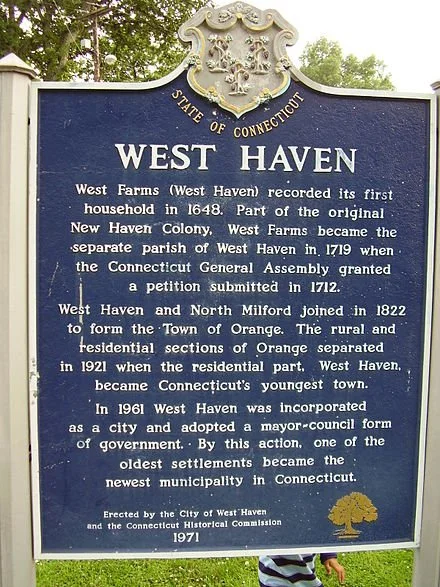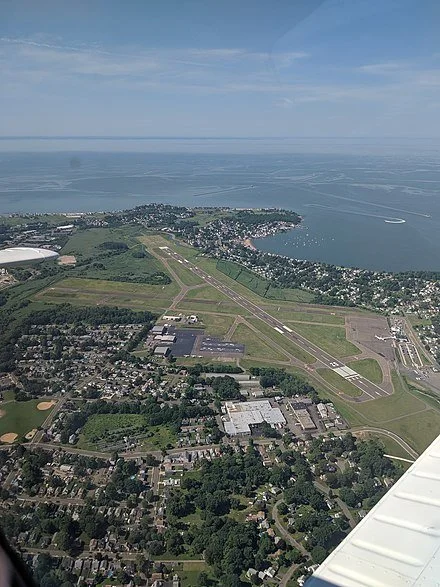Chris Powell: Out-of-state marching band plays dirge for Connecticut
Ocean Avenue in West Haven
MANCHESTER, Conn.
West Haven may be providing the perfect metaphor for government and politics in Connecticut.
The small city has been suffering from financial excess so long that since 2017 it has been operating under the supervision of the state's Municipal Accountability Review Board. Because of a federal criminal indictment announced a few weeks ago, the city discovered that it had been looted of $636,000 of its emergency federal epidemic assistance money, allegedly embezzled by its state representative, who had been double-dipping as a salaried assistant to the City Council.
Nevertheless, Mayor Nancy Rossi's defense against the scandal right under her nose -- her obliviousness -- was accepted by the voters, who narrowly re-elected her Nov. 2.
Then enterprising journalism by the Connecticut Mirror found that apart from being embezzled, some of West Haven's emergency federal money was also spent to hire a marching band for the city's Memorial Day parade, to buy Christmas decorations, and to buy services from a City Council member's company. The New Haven Register already had reported that some of the federal money was spent to pay town officials for "compensatory time."
While the state accountability board had placed an agent at City Hall, he missed the fraud as well. So maybe the board needs to be investigated as much as city government does.
In another state such a scandal might prompt the legislature to hold hearings to investigate. But Connecticut's state legislators have left the corruption issue to federal prosecutors, just as the state's own prosecutors have.
Nevertheless, an estimated $4 billion more in federal money will be sent to Connecticut for highway and bridge improvements under the "infrastructure" legislation recently approved by Congress. Connecticut Rep. Rosa L. DeLauro, chairwoman of the House Appropriations Committee, says the money is all about "jobs, jobs, jobs."
But thousands of jobs, including many highly paid jobs in manufacturing, are already open in the state and can't be filled. Indeed, that marching band for the West Haven parade had to be imported from New York.
At least the federal infrastructure money may demolish the long-running argument for reimposing tolls on Connecticut highways. The money also may demolish the argument for joining what is called the Transportation Climate Initiative, an increase in the wholesale tax on gasoline in the name of raising money for less-polluting modes of transportation.
And if, as many members of Congress hope, their next spending bill includes a national program of paid family and medical leave, Connecticut will be able to repeal its own recently enacted program, for which the state income tax was raised by a half percent.
Federal money is considered better than state money because it can be created without taxation and thus can seem free -- as long as people don't start wondering why their fast-food hamburger and fries now cost more than $10 and gasoline more than $3 per gallon.
Whatever happens, government in Connecticut already has far more emergency federal money than it knows what to do with. That's why some has been spent on a marching band.
Tweed New Haven Airport
Gov. Ned Lamont and other dignitaries gathered Nov. 3 to celebrate the revival of Tweed New Haven Airport, which is the new East Coast hub for startup Avelo Airlines. There are great plans for Tweed -- lengthening its runway to handle larger jetliners and construction of a terminal accommodating more traffic.
But Avelo is not what Connecticut really needs at Tweed. For the airline plans only flights to six cities in Florida, to which thousands of state residents relocate in the winter, often for tax purposes, the Sunshine State not taxing personal income.
Instead of more ways of sending people to Florida, Tweed and the New Haven area need flights to hub airports, such as the American Airlines flights to Philadelphia and Charlotte that Tweed had until the virus epidemic devastated the travel industry.
If Tweed could recover those flights and gain flights to Chicago or Dallas, the airport would put New Haven on the national map for business development. Suddenly more people might have reason to come to Connecticut than to leave it.
Chris Powell is a columnist for the Journal Inquirer, in Manchester.


